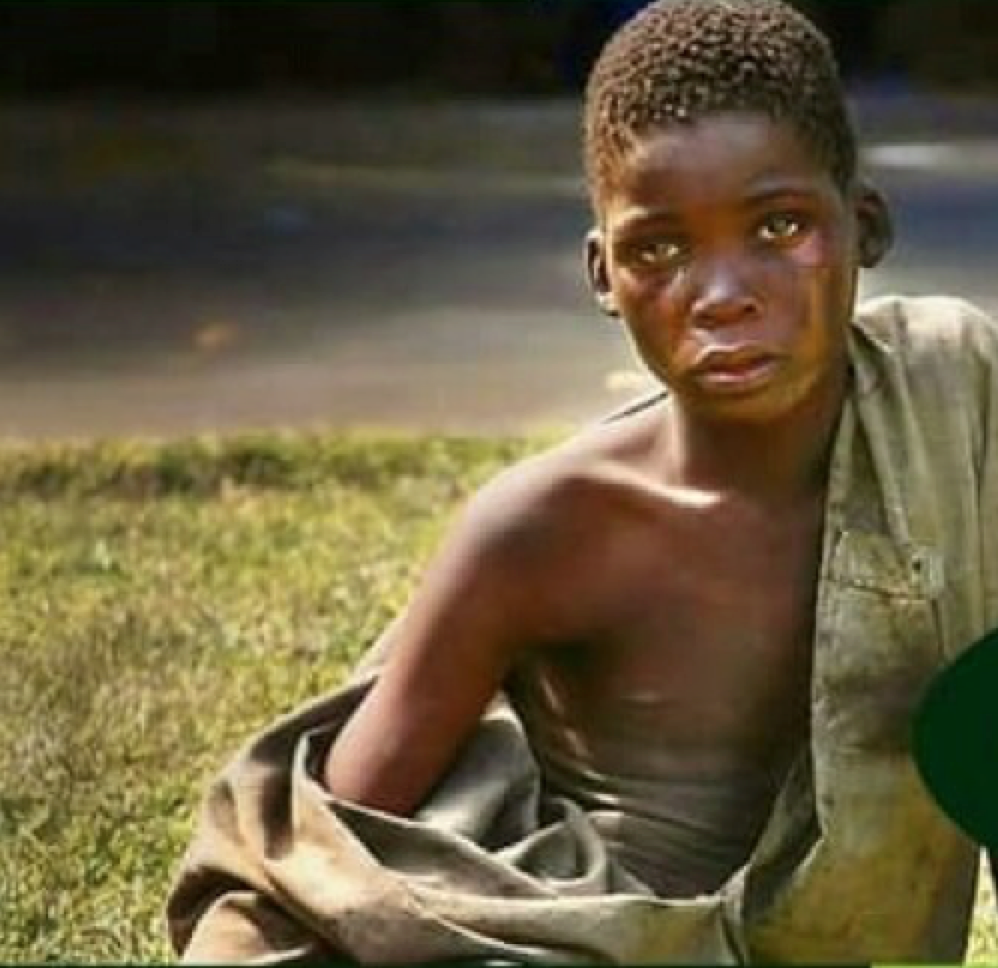
A street child.
Photo credit: Today for Tomorrow Media Team
A world which abandons its children in the street has no future. A world which tries to ignore the precariousness of the human condition inspires no confidence.
It is a world that has become simply dehumanized and which today needs to urgently awaken to the true value of human existence.
For more than two years, the Today for Tomorrow Foundation (TFT) has been working tirelessly to reduce the menace of street children which has increased in Calabar, Cross River State’s capital. TFT’s objective is to provide support and rehabilitation to the most vulnerable and distressed street children thereby helping them attain their life’s dreams and aspirations.
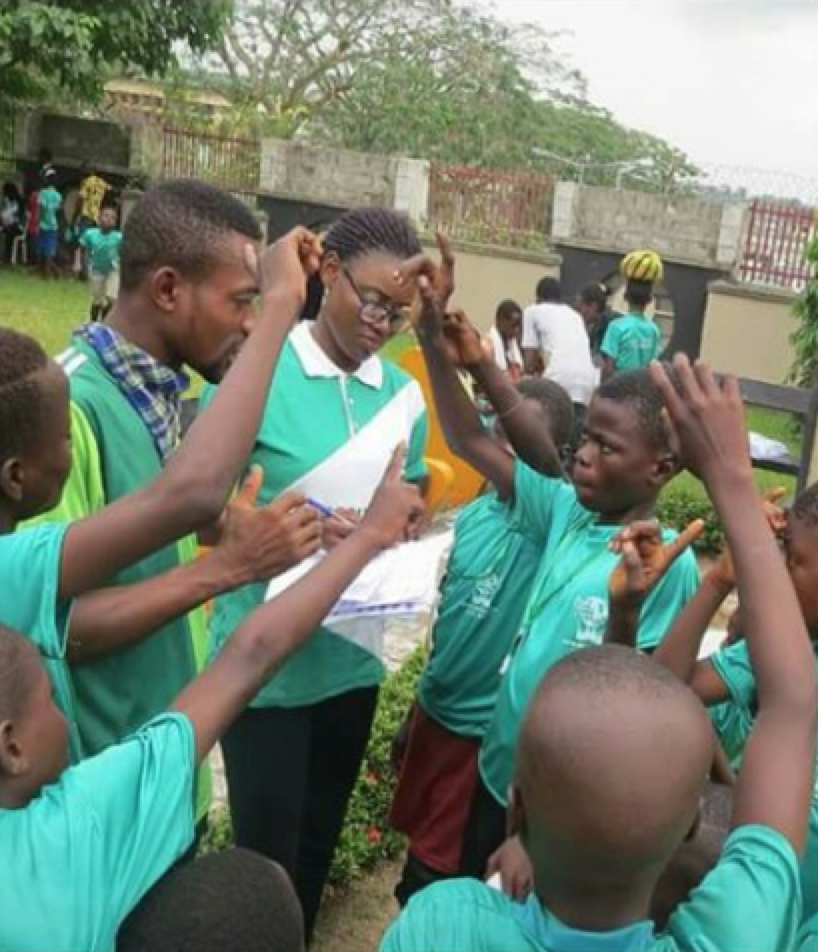
Focus group discussion with the street children
Photo credit: Today For Tomorrow Foundation Media Team
Being a public health activist with the passion to serve humanity, I had the opportunity to conduct a formative research study to identify the challenges faced by street children in Calabar Metropolis. We identified the lack of basic amenities, access to healthcare services, access to education, security, and stigmatization from the larger community members as key concerns. These problems have been attributed to the abandonment of children by parents who can’t afford to keep them due to poverty, family breakdown, abuses such as physical, mental, and sexual abuse, among others. Also, lots of these children have been accused of witchcraft, some lost their parents due to the AIDS pandemic and have to fend for themselves as the wider family members aren’t prepared to commit to their care.
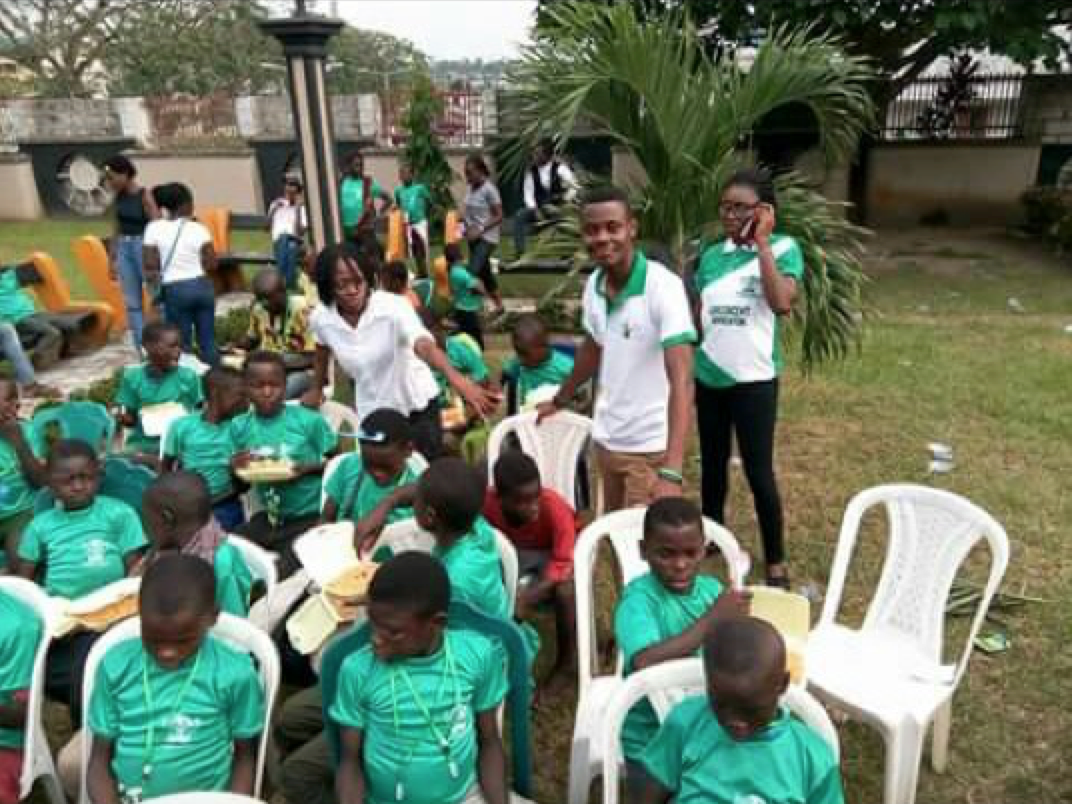
Street children provided a hot meal by Today for Tomorrow Foundation.
Photo credit: Today For Tomorrow Foundation Media Team
Thus with the passion to serve humanity, I played the role of the client care coordinator and I contributed a huge chunk of my time to ensuring that the challenges identified among these children are addressed by making contact with various health organizations actively involved in the protection of children’s rights and the provision of healthcare services such as the Child Care and Adult Protection Initiative, Passion Universal, and the state hospital. We adopted various approaches to address these problems which includes:
- Focus group discussion (FGD); where about 100 street children are divided into cohorts of 10 for effective health education, confidence building, and counseling sessions; providing them with a hot meal per day and clothing; provision of periodic healthcare services; vocational training of employable skills such as sewing, shoe making, and welding among others; and informal education for those who have interest in schooling in order to equip them with the basics.
- Sensitization of larger community members to debunk their mindset towards this children as witches, etc.;
- Setting up free contraceptive pickup portals for those sexually active;
- Above all, rehabilitation of 21 street children within the ages of 13 to 19 years under critical and life threading conditions with included teenage pregnancy, reactive cases to HIV/AIDS, and drug addiction. Other cases such as malnutrition among children under 10 years of age children, reproductive health disorders among young adults 20 years and over, among others; and referrals were made to sister agencies working with this age range.
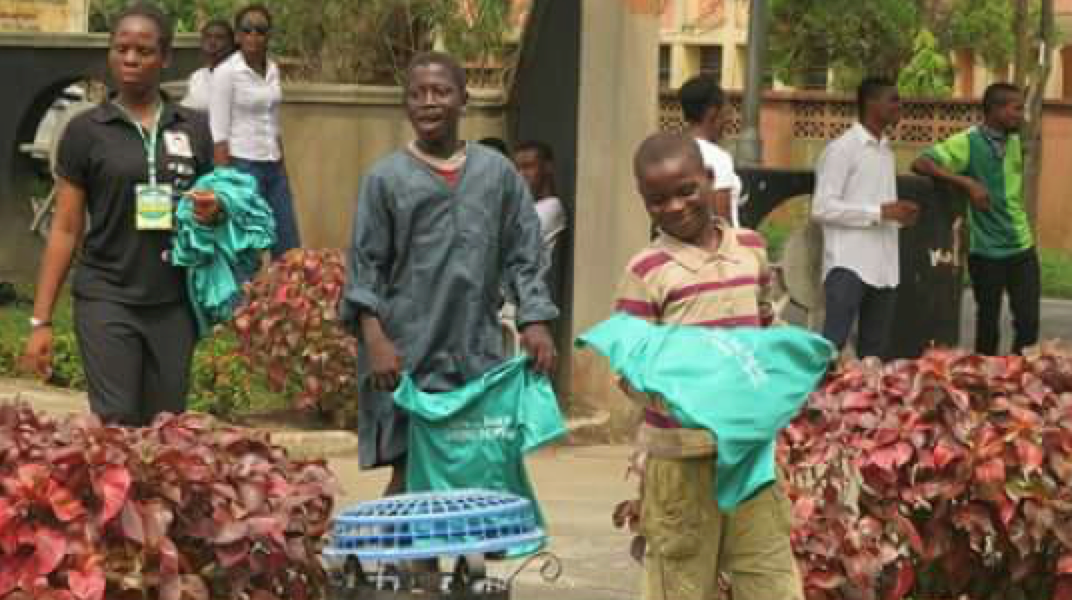
Clothing provided for street children
Photo credit: Today For Tomorrow Foundation Media Team
Hence, we have achieved successes in the following areas;
- From our FGD sessions we have witnessed the children making informed decisions to return back to their homes with social support being provided for the household;
- Positive attitudes exhibited by children at the various vocational training centers and positive morale increasing overall;
- Decrease in the stigmatization of street children by the larger community;
- Increase in assessment of contraceptives from different portals; and
- From our rehabilitation home, we have recorded one child birth and two currently attending antenatal care, decreases in viral loads for six positive cases of HIV/AIDS identified, proper management of withdrawal symptoms resulting from breaking free from substance addiction among 12 adolescents.
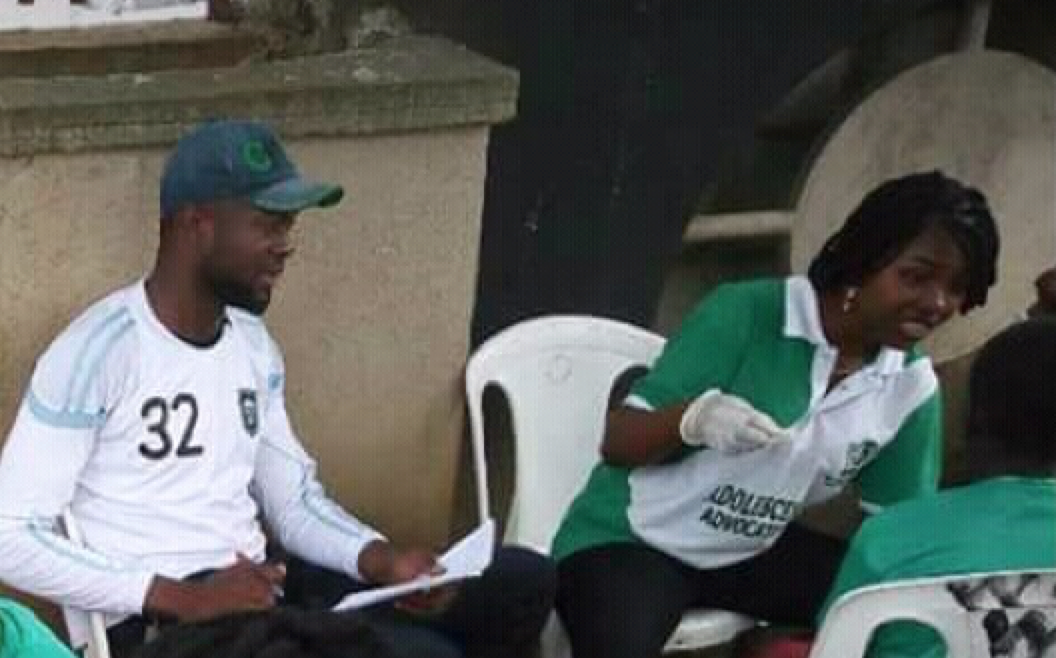
Okoi Faith (article author) carrying out HIV/AIDS testing and counselling with street children.
Photo credit: Today For Tomorrow Foundation Media Team
The beauty of a project lies in its longevity, having understood the importance of long-term sustainability, we adopted various strategies to ensure sustainability of the street children project which include:
- Community involvement by engaging the services of local vocational groups such as the shoe making group, sewing group, welding group, etc. in equipping these children with employable skills.
- Building and strengthening partnership with organizations working with this target group but among different target ages.
- We also involved the services of unpaid volunteers in performing some activities as human resources in achieving our goals.
- Reaching out for support and sponsorship from public spirited individual and donor agencies.
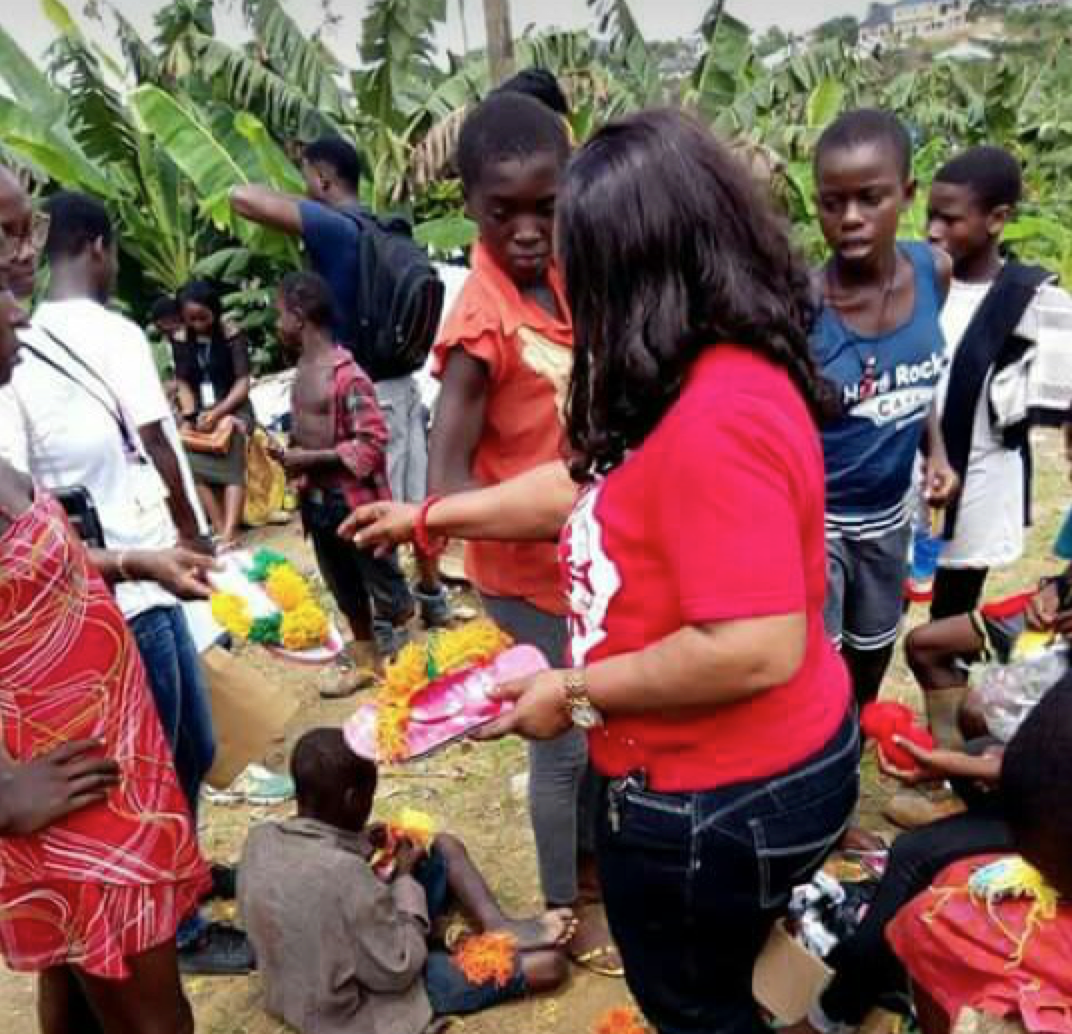
Today for Tomorrow shoe making at a Vocational Training Center.
Photo credit: Today For Tomorrow Media Team
Challenges and setbacks are part of life. The challenges we are encountering in the street children project are inadequate funds and resources to rehabilitate all street children of various age ranges hence the need for us to set target ages (i.e., 13 to 19 years) and conditions for referrals to our rehabilitation home.
For more information about Today For Tomorrow please visit www.todayfortomorrow.com.ng.


